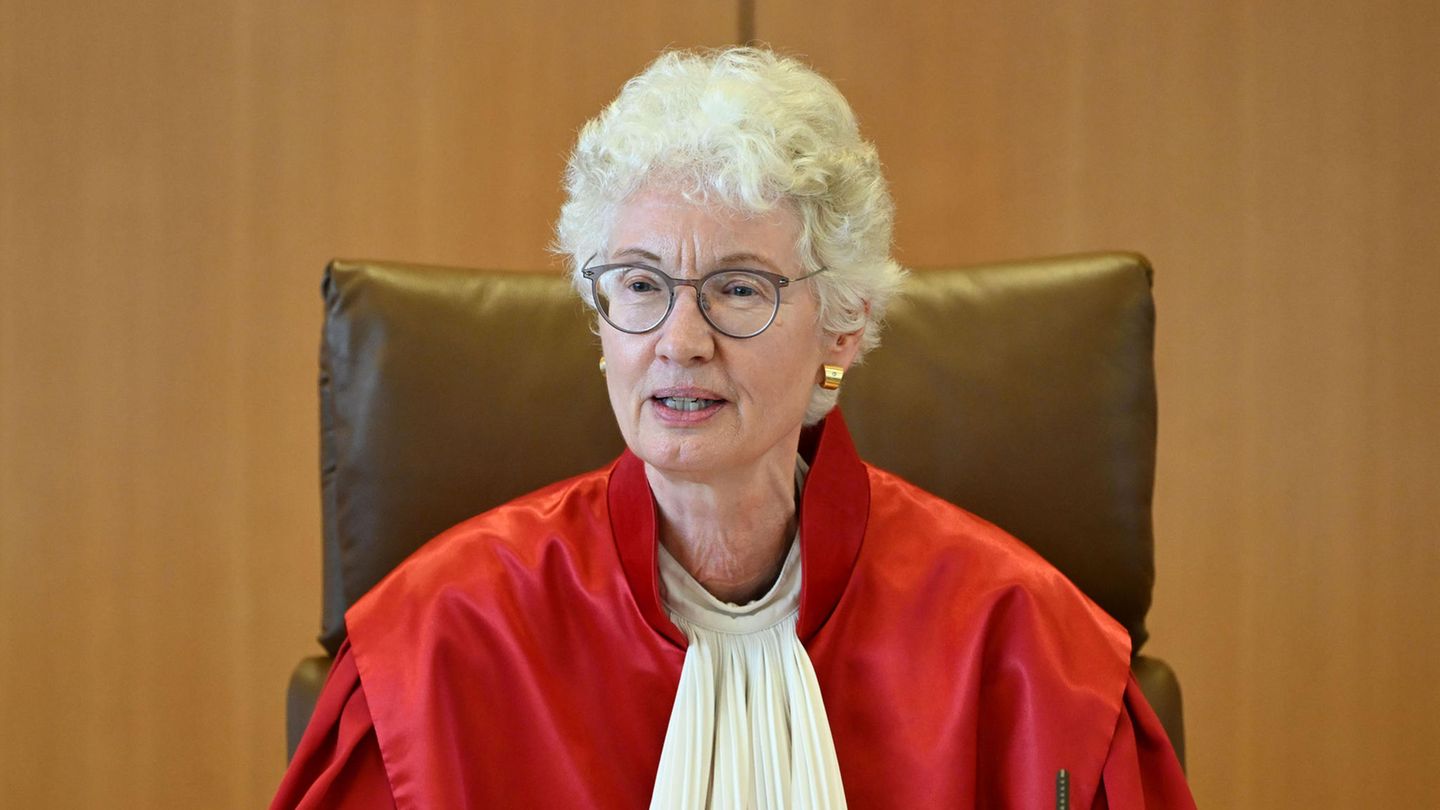analysis
The constitutional judges have objected to parts of the electoral reform of the traffic light coalition. Nevertheless, the SPD, Greens and FDP are relieved. Why this is.
The Federal Constitutional Court in Karlsruhe declared parts of the electoral reform of the traffic light coalition to be unconstitutional on Tuesday. At the same time, however, the eight judges of the Second Senate have set out a path that will not cause too much trouble for the SPD, Greens and FDP – and will provide clarity for the upcoming federal election next year.
The court ruled that the fundamental new regulation of the traffic light coalition, which limits the size of the Bundestag, is legal. The Bundestag has become larger and therefore more expensive in recent years. The traffic light reform now limits the seats in the Bundestag to 630, around 100 fewer than at present. In addition, the second vote on the ballot paper used to elect the party’s state list will have greater weight in the future. The previous so-called overhang and compensatory mandates will no longer apply.
In practice, this can lead to a candidate not being able to enter the Bundestag in the future, even if he or she receives the majority of votes in his or her constituency. The CSU in particular had filed a complaint against this, but according to the judges, the regulation is compatible with the constitution. “The second senate of the Federal Constitutional Court has today decided that the second vote coverage procedure in the new Federal Election Law is compatible with the Basic Law,” said Vice President Doris König in Karlsruhe.
Voting rights: “The heart of the reform has been confirmed”
The court has “confirmed the core of the electoral reform,” said FDP deputy parliamentary group leader Konstantin Kuhle to star“In the crucial question of reducing the size of the Bundestag, the ruling fully confirms the reform.” The SPD’s domestic policy spokesman expressed similar views: “The core has been confirmed, and the reform was courageous,” Sebastian Hartmann told the star“For the first time in the history of federal electoral law, there is a fixed size in the Bundestag.”
However, as part of the reform, the SPD, Greens and FDP also abolished the so-called basic mandate clause. This states that a party can enter the Bundestag under certain conditions even if it does not manage to overcome the five percent hurdle. Namely, if it wins at least three constituencies directly. Changing the five percent threshold in this way “currently violates the principle of equal voting rights and the principle of equal opportunities for parties,” explained Judge König.
No new regulation necessary before the election
This will not cause the traffic light coalition to collapse in despair. The court’s ruling was as practical as possible. The ruling does not stipulate that parliament must find a new regulation before the next election. That could have been a tight deadline, as the federal election will take place in September next year. The court has determined that the basic mandate clause will be reinstated until the legislature changes the law.
As of now, the following applies to the upcoming federal election in September 2025:
- As before, each voter has two votes, the first vote for the election of a constituency candidate, the second vote for the state list of a party
- The size of the Bundestag is limited to 630 seats
- This limitation also means that situations can arise in which a candidate does not enter the Bundestag even though he or she won the most votes in his or her constituency.
- The five percent hurdle continues to apply with the exception of the basic mandate clause: If a party wins at least three constituencies, it enters the Bundestag, even if it receives less than five percent of the vote in total
Greens: “We advise against hasty decisions before the next election”
At least in the medium term, however, the legislature must look at the issue again. The issue of the basic mandate clause should now be examined in detail, said Till Steffen, parliamentary manager of the Greens in the Bundestag. “We advise against making hasty decisions before the next federal election.”
It is possible that Parliament will decide to reinstate the basic mandate clause. Theoretically, however, the legislature could also take a different approach to comply with the court’s ruling. For example, the five percent hurdle could be lowered to three or four percent. However, this is considered rather unlikely.
Alternatively, the Bundestag could also find a regulation that takes special account of the CDU and its little sister CSU, which only runs in Bavaria. The court’s reasoning for the ruling was tailored specifically to this aspect and emphasized “a long-term, close cooperation between the two parties,” which the law must take into account.
The ruling is a relief not only for the traffic light coalition, but also for the Left Party and the CSU, who had filed a lawsuit against the reform. The Left Party was only able to enter the Bundestag in the last federal election thanks to the exemption from the basic mandate clause. In the 2021 election, the CSU received 5.2 percent of the vote nationwide, just barely over the five percent hurdle. If it were to break this hurdle in the next election, it too would have to rely on the basic mandate clause – which has now been reinstated by the court.
Source: Stern
I have been working in the news industry for over 6 years, first as a reporter and now as an editor. I have covered politics extensively, and my work has appeared in major newspapers and online news outlets around the world. In addition to my writing, I also contribute regularly to 24 Hours World.




